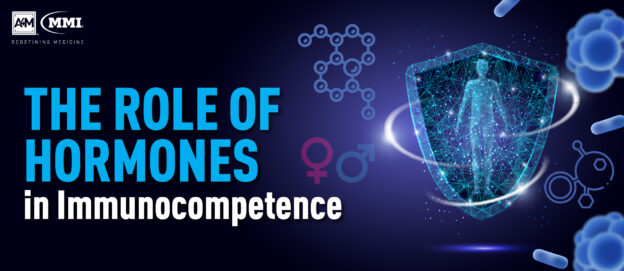While the average life-expectancy for humans continues to increase, a longer life span has been tied to an uptick in age-related disease and impairment across the globe. As a result of a declining immune system, the growing elderly population is more prone to infectious diseases – including influenza and COVID-19. Additionally, this group is commonly affected by age-related frailty, which has a significant negative impact on quality of life. The high level of care and involvement required to maintain the health of these patients has the potential to bear a growing burden on the healthcare system which is part of the reason underlying research efforts in the field of human longevity.
The current body of knowledge suggests the role of chronic low-grade inflammation in the biological aging process and development of age-related diseases; scientific evidence implicates that the presence of inflammation in the body accelerates aging. Hoping to uncover more information about additional factors that may contribute to an accelerated process and potential methods of reversing them, a team of researchers from the Department for BioMedical Research at the University of Bern conducted a study with findings published in Nature Metabolism.
Age-Related Frailty and Immunity
Under Bernese guidance, Dr. Mario Noti and Dr. Alexander Eggel aimed to identify new approaches to improving health-span in an ever-increasing aging population by focusing on adipose tissue eosinophils (ATEs) present in humans and mice. These immune cells found in visceral adipose tissue, otherwise known as belly fat, play an essential role in regulating inflammation and could be used to reverse aging processes; these cells are important in the control of obesity-related inflammation and metabolic disease as they are responsible for maintaining local immune homeostasis. Increasing age is tied to a decrease in eosinophils in adipose tissue and an increase in pro-inflammatory macrophages – turning belly fat into a source of pro-inflammatory activity.
Role of Eosinophils in Chronic Inflammation
The study’s authors demonstrated that visceral adipose tissue contributed to the development of chronic low-grade inflammation. They found that ATEs undergo major age-related changes in distribution and function associated with impaired adipose tissue homeostasis and systemic low-grade inflammation in human subjects as well as mice. However, exposure to a young systemic environment was able to partially restore ATE distribution in aged subjects by reducing adipose tissue inflammation.
“In different experimental approaches, we were able to show that transfers of eosinophils from young mice into aged recipients resolved not only local but also systemic low-grade inflammation,” the researchers told ScienceDaily. ”In these experiments, we observed that transferred eosinophils were selectively homing into adipose tissue.”
Using an adoptive transfer or eosinophils from young mice to aged subjects, researchers were able to restore ATE distribution and sufficiently mitigate age-related local and systemic low-grade inflammation. As a result of the transfer, youthful systemic environments were restored and systemic rejuvenation took place in aged mice. Changes were both physical – assessed by endurance and grip strength tests – and immune-related – manifested in improved vaccination responses.
Dr. Noti and Dr. Eggel’s findings support the critical function of adipose tissue as a source contributing to accelerated aging and uncover the new role of eosinophils in sustaining adipose tissue homeostasis and thus, promoting healthy aging.
Because the age-related changes in adipose immune cell distribution were confirmed in human subjects, the latest study may have significant positive implications for the anti-aging medicine field when translated into clinical practice. Age-related frailty and immune decline may be halted and potentially even reversed as a result of this novel cell-based therapeutic approach.
“Our results indicate that the biological processes of aging and the associated functional impairments are more plastic than previously assumed,” Dr. Noti stated. “A future direction of our research will be to now leverage the gained knowledge for the establishment of targeted therapeutic approaches to promote and sustain healthy aging in humans,” his research partner Dr. Eggel concluded.



